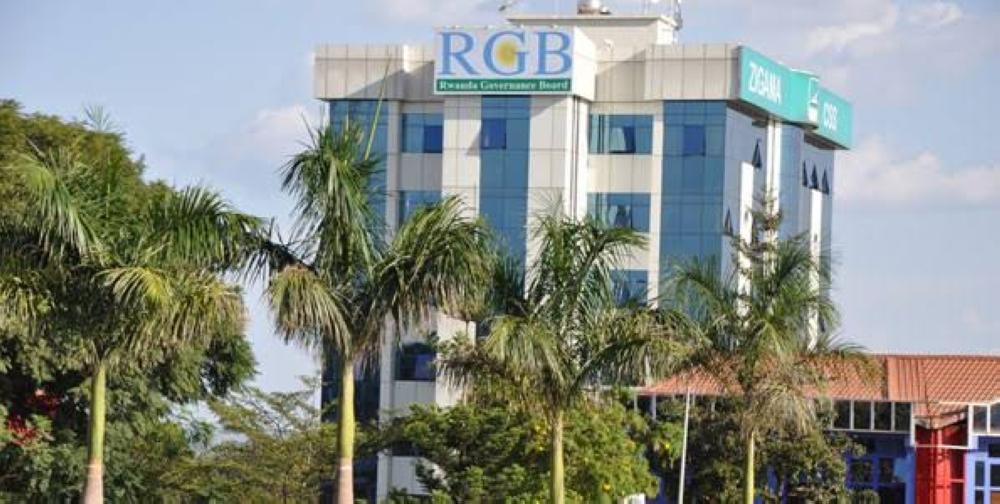Africa-Press – Rwanda. The 12th edition of Rwanda Governance Scorecard (RGS) has once again ranked Safety and Security as Rwanda’s best-performing governance pillar, reaffirming its consistent lead over other areas.
Developed by Rwanda Governance Board (RGB), the scorecard provides credible, evidence-based data to guide policymaking and inform national development strategies.
The RGS evaluates performance across eight key pillars that collectively capture Rwanda’s progress in governance and development. These pillars are Rule of Law, Political Rights and Civil Liberties, Participation and Inclusiveness, Safety and Security, Investing in Human and Social Development, Control of Corruption, Transparency and Accountability, Quality of Service Delivery, and Economic and Corporate Governance. Together, they provide a holistic picture of how institutions function and how citizens experience governance outcomes, officials said.
Each pillar is assessed through specific indicators that measure both institutional performance and citizen perceptions. For instance, under the Rule of Law pillar, the judiciary scored 73.47 per cent, the legislature 83.18 per cent, access to justice 79.43 per cent, and criminal investigation and prosecution 90.44 per cent.
Sub-indicators such as trust in the judiciary (90 per cent), court independence (95.5 per cent), backlog of cases (59 per cent), and timeliness of trials (71 per cent) reveal both progress and areas for improvement.
Despite solid overall results, the pillars of Human and Social Development, Service Delivery, and Economic and Corporate Governance continue to register lower scores, underscoring the need for targeted policy interventions to achieve balanced governance transformation.
During the launch of the scorecard on Friday, October 31, RGB Chief Executive Officer Doris Uwicyeza Picard highlighted the importance of enhancing service quality and strengthening citizen-centered governance, especially at the local level.
“We need to deepen decentralization, improve delivery of human development outcomes, and expand economic inclusion. That is the next frontier for our governance journey,” she said.
Picard emphasized that while Rwanda remains among Africa’s top performers in governance, the focus must now shift toward translating those achievements into tangible improvements in citizens’ daily lives.
“The scorecard reminds us that our challenge is to make governance results more visible and impactful in people’s experiences,” she said.
She noted that the index serves as a vital tool for evidence-based policymaking and accountability.
“This scorecard provides the data required to inform policy. Continuous engagement with government institutions, the private sector, civil society, and development partners ensures that governance continues to evolve through collaboration.”
How RGB evaluates governance performance
The Rwanda Governance Board employs a rigorous, data-driven methodology to assess governance, combining national priorities with international standards. The RGS uses globally recognized indicators customized to Rwanda’s context, drawing from citizen surveys, institutional reports, and administrative records.
While previous editions were locally guided by Vision 2020 and the first National Strategy for Transformation (NST1), the latest edition aligns with NST2 and sector strategic plans, consistent with the aspirations of Vision 2050. Data sources include national surveys such as the seventh Integrated Household Living Conditions Survey (EICV7), 2020 Demographic Health Survey (DHS). and 2022 Rwanda Population and Housing Census alongside instruments like the Citizen Report Card, Rwanda Media Barometer 2024, and Civil Society Barometer 2023.
Perception surveys play an essential role, capturing citizens’ perspectives on governance issues, such as justice, corruption, and service delivery, that cannot be fully represented through administrative data.
Once collected, the data undergo validation and are analyzed using standardized statistical methods. Indicators and pillars are equally weighted, with scores ranging from zero to 100, benchmarked against national, sectoral, and international targets. NST2 and Vision 2050 serve as primary reference frameworks.
According to Anatole Mulindwa, the Acting Head of Research and Development at RGB, the methodology underpinning the RGS is continuously refined to align with national priorities and evolving global governance standards.
“We revise our measurement frameworks in accordance with prevailing national, regional, and international trends,” Mulindwa explained. “That is why the 12th edition reflects the National Strategy for Transformation, whose goals were clearly articulated in 2024.”
He noted that this approach enables RGB to gauge Rwanda’s governance trajectory within its broader development vision.
“By anchoring our assessment on NST2, we can determine how institutions in different sectors stand, what has been achieved, and how as service providers this progress aligns with our long-term aspiration to ensure improved living standards for every Rwandan.”
Mulindwa emphasized that the assessment integrates multiple policy instruments and international benchmarks to provide a comprehensive understanding of national performance.
“Our analysis extends beyond NST2 to encompass Vision 2050, the African Union’s Agenda 2063, the United Nations Sustainable Development Goals (SDGs), and how other global indices rank Rwanda. Together, these frameworks help position Rwanda’s progress not only domestically but also within regional and global contexts.”
He added that the scoring methodology offers both diagnostic and aspirational insights.
“When a pillar scores 70 per cent, it means 30 per cent remains to be achieved, a measure of the distance institutions and stakeholders must cover to meet NST2 targets. Conversely, when an indicator reaches above 90 per cent, it reflects robust strategies and tangible results,”
“For example, under the Transparency and Accountability pillar, strong legal frameworks are in place and yielding measurable outcomes. Similarly, citizen satisfaction under the Political Rights and Civil Liberties pillar demonstrates that political organizations operate effectively within established legal frameworks.”
For More News And Analysis About Rwanda Follow Africa-Press






